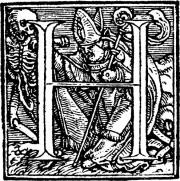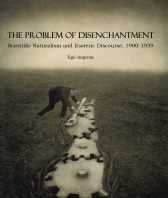
The Problem of Disenchantment – Coming to a university library near you.
I received exciting news this morning that my second book The Problem of Disenchantment: Scientific Naturalism and Esoteric Discourse, 1900-1939 is now officially published and available from Brill. Based on my PhD research it’s been a long time in the making (about 6 years), so it will be very satisfying to see the final hardbound result (waiting for my author copies). Time to request review copies and tell your local university library to stock it! Of course, you should do that with the other publications from the esoterica “brat pack” as well.
For a teaser of my book, here are three flattering blurbs from three exceptional scholars:
This is a path-breaking book! It not only opens up an interdisciplinary space in which to analyze a range of responses to disenchantment within and between the history of religion, the history of science, and the history of esotericism, but it articulates a method – Problemgeschichte – for doing so. The method allows Asprem to surface many contending views on the place of mysterious incalculable powers in the modern world, which cut across disciplines in surprising ways, and to demonstrate the value of a critical constructivism build on naturalistic grounds for scholarly work.
– Ann Taves, University of California at Santa Barbara.
The complex interface between the sciences, religion, and esoteric forms of thought and experience is one of those “elephants in the living room” that many know about but almost no one knows how to talk about. Egil Asprem knows how to talk about it, and very well indeed: through a historical genealogy of the interface, through a careful tracing of the debates around the limits of reason and science, and through an astute rethinking of Weber’s seminal notion of disenchantment. The result is extremely satisfying and rich beyond measure.
– Jeffrey J. Kripal, author of Authors of the Impossible: The Paranormal and the Sacred.
Egil Asprem’s study has the potential of causing a Copernican revolution in our understanding of the “disenchantment of the world”. Grounded in meticulous textual analysis of a large sample of representative sources – from the “hard” natural sciences via psychical research to the “soft” domain of religion and esotericism – it combines sensitive historical research with sharp theoretical reflection and should lead us to question some of our most deeply ingrained assumptions about the nature of modernity.
– Wouter J. Hanegraaff, University of Amsterdam.
Their words, not mine.










